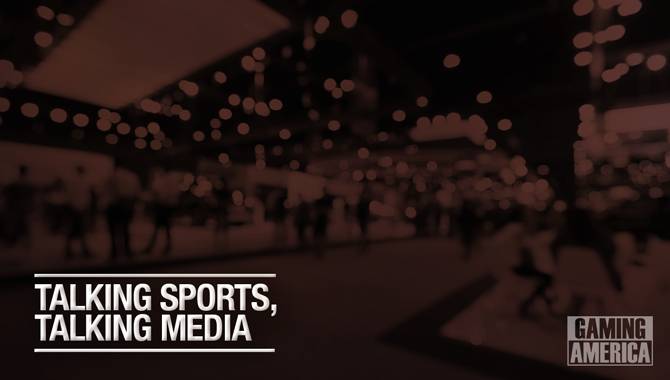
The Convergence of Gaming, Sports and Media was a panel held at the 2022 Indian Gaming Association Tradeshow & Convention. Moderated by Brendan Bussman (Managing Partner at B Global), it consisted of three industry players discussing a vital aspect of the sports betting world: media partnerships in the furtherance of the industry. Clifton Ma (VP of Partnerships/Strategic Initiatives at FanDuel), Casey Clark (SVP at the American Gaming Association), and Sara Slane (Founder at Slane Advisory) all appeared on the panel. An abbreviated transcript follows.
How have the views of professional sports leagues evolved regarding the matter of partnerships with betting operators?
Sara Slane: They’ll tell you they’re dipping their toes in the water. I think they’ve probably got a foot in the water at this point, but they’ll probably be all the way in – with their bodies in the water – at some point soon. As far as the partnerships are being structured, it’s a natural evolution.
Casey Clark: I agree. I think, once they realize how much money there is to be made, there isn’t a much better entry point. I also think they saw the value of working with the teams, along with other people who could bring them along and help educate them. From our standpoint at the American Gaming Association, it’s important that we make them understand how to do this the right way – not for them to hurry up and get involved in the business – and that takes some time. We continue to do that every day: to teach how to behave in this environment in a responsible way and create a sustainable marketplace that’s going to be good for everybody.
And how about the role of the teams? What role do they play?
Clifton Ma: It’s worth calling attention to both leagues and teams. With teams, for us it’s about brands, something that can be awareness or affinity. It’s also about some level of activation. We’re getting some people to sign up or to convert. And then it’s also about our VIP experiences, and whether that’s access to games or to something else. We want to make sure we are catering to a certain subset of our users in a way that makes them feel special. Teams are essentially an aspect of marketing. In the same way that when we enter a new state, we determine whether to buy TV or radio space or print advertisements, teams are an alike consideration. It doesn’t mean we’ll do a team deal every time we enter a state; it’s just a core part of what is important to us as we seek to elevate our brand.
How do you talk to a team about how they enter this space in an appropriate manner?
Slane: The perspective that I always try to bring is the operator point of view: that death-by-a-thousand-cuts is not going to work. It really should be viewed through the lens of a partnership: what should be good for the team and for the operator is going to benefit everyone. Sometimes what ends up happening – and thank you for making a distinction between the leagues and the teams – is that the leagues are the sort of grandparent of the teams, setting the tone and the rules for how the teams can engage from a commercial perspective. What’s nice about this arrangement is that the leagues provide some form of regulation for the teams (unlike in Europe). The leagues dictate what the teams can do and how they can monetize off of opportunity – advertisement placements, responsible gaming measures that need to be put into place, etc.
What is the significance of pushing responsible gaming measures in these partnerships?
Clark: I think part of the education that has happened with teams and leagues over time has been making them understand what their responsibility really is in this space, in order to create that viable market. It’s not just about how you activate the most commercially viable opportunity you can get your hands on, but how do you build something that the community will like; that will engage fans meaningfully and not detract from the experience for fans who don’t like to have gaming as part of their sports experience. For us, it was very focused on consumer education: that people now seeing sports betting content during their baseball or football watching experience knew how to adequately respond to it. A lot of people are avid gamblers or sports bettors and they understand how to react to that, but a lot of people are watching it for the first time. We built a public service program called Have A Game Plan. We have 30 partners, including operators, leagues, teams and other providers involved in the ecosystem of sports betting. This brings everyone together around the common theme of sports betting.
Can you speak about some specific partnerships that have come about between leagues and operators?
Ma: The Phoenix Suns partnership with FanDuel was an interesting one that literally happened on the concourse of the United Center in Chicago during All-Star Weekend. We got an email from the Suns saying, "we’d love to talk about what’s happening in Arizona [mobile sports betting was on the cusp of becoming legal]." So we met and we talked, and it was a lot of conversation around education; what do you think is going to happen here, or notes about what they were hearing from the Governor’s office. I think what we realized was that there was an opportunity to partner with a group like the Suns. The interesting thing about the Suns for us was that they had a lot of assets – such as the arena, which is under its control – but it also controlled its regional sports network inventory. By controlling the broadcast, you were able to take one aspect of the market – buying media surrounding the local games – and create incredible market access for yourself.

